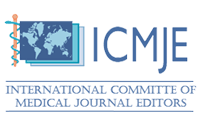Total Antioxidant Capacity, Antimicrobial Activity and Preliminary Analysis of Some Nutritional Compounds in Moringa Oleifera preparations
Enrico Doria1,3*, Bakari Daoudou1,2, Daniela Buonocore3, Manuela Verri3, Maurizia Dossena3, Lethabo Mashigo1, Steven Manzi4 and Abdulkadir A Egal1
Affiliation
- 1Centre of Sustainable Livelihoods, Vaal University of Technology, Vanderbijlpark, South Africa
- 2Department of Biological Science, Faculty of Sciences, University of Maroua, Maroua, Cameroon
- 3Department of Biology and Biotechnology, University of Pavia, Italy
- 4Department of Biotechnology, Vaal University of Technology, Vanderbijlpark, South Africa
Corresponding Author
Enrico Doria1, Centre of Sustainable Livelihoods (CSL), Vaal University of Technology, EF04, Science Park, Private Bag X021, Andriers Potgieter Boulevard, Vanderbijlpark, 1900, South Africa; Tel: + 39-0382985580; E-mail: enrico.doria@unipv.it
Citation
Doria, E., et al. Total Antioxidant Capacity, Antimicrobial Activity and Preliminary Analysis of Some Nutritional Compounds in Moringa oleifera preparations. (2017) Int J Food Nutr Sci 4(1): 23- 29.
Copy rights
© 2016 Doria, E. This is an Open access article distributed under the terms of Creative Commons Attribution 4.0 International License.
Keywords
Abstract
Globally, there is a growing interest in plant products as a potential source of antioxidant compounds in relation to oxidative stress that is one of the causes of several degenerative diseases. Moringa oleifera is one of the African plants commonly consumed as a nutritional supplement by several communities, due to the high level of vitamins and minerals present in the leaves. In this study, the antioxidant power, some nutritional (polyphenols, vitamin C, flavonoids as kaempferol and quercetin, ursolic acid and trigonelline) and anti nutritional factors (condensed tannins, phytic acid) from a leaf powder extract, obtained from a Moringa cultivar grown in Guateng region (South Africa), were tested. Some of these results were compared to a commercial Rooibos tea (Aspalathus linearis), another typical and commonly used South African beverage, and to coffee (Coffee arabica). The results of these comparison tests indicated that tea preparations from Moringa oleifera powder and from Rooibos tea contains the same antioxidant activity but the content of flavonoids, vitamin C and free phosphate are significantly higher in Moringa. Moreover, Moringa extract shows antimicrobial and antifungal activity and very significant concentrations of ursolic acid (first evidence in moringa) and trigonelline












